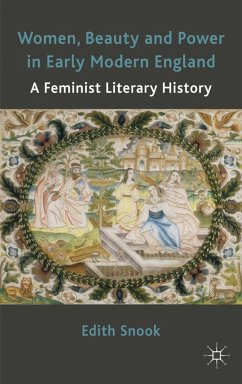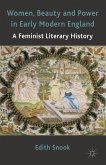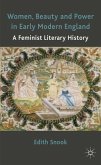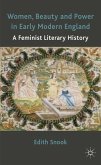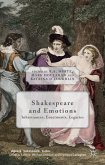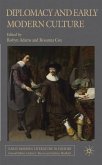Divided into three sections on cosmetics, clothes and hairstyling, this book explores how early modern women regarded beauty culture and in what ways skin, clothes and hair could be used to represent racial, class and gender identities, and to convey political, religious and philosophical ideals.
'A masterful, eloquent, and convincing interpretation of the early modern culture of beauty which has vast implications for myriad areas of critical and historical interest beyond this topic alone.' - Patricia Phillippy, Kingston University, UK
"Women, Beauty and Power: A Feminist Literary History is a significant and valuable intervention in the ongoing discussion of the construction and interpretation of female beauty in the early modern period. ... It is an important book." (Heather Campbell, Renaissance and Reformation, Vol. 42 (3), 2019)
"A masterful, eloquent, and convincing interpretation of the early modern culture of beauty which has vast implications for myriad areas of critical and historical interest beyond this topic alone." Patricia Phillippy, Kingston University, UK
"Snook's careful and lucid account of early modern women and their beauty practices, and how they variously intersect with hierarchies of power, will be of interest to scholars of early modern women's writing, material culture, and the history of beauty, and it isto be commended for its timely re-orienting of the subject towards texts produced by women." Emily O'Brien, Early Modern Studies Journal
"A masterful, eloquent, and convincing interpretation of the early modern culture of beauty which has vast implications for myriad areas of critical and historical interest beyond this topic alone." Patricia Phillippy, Kingston University, UK
"Snook's careful and lucid account of early modern women and their beauty practices, and how they variously intersect with hierarchies of power, will be of interest to scholars of early modern women's writing, material culture, and the history of beauty, and it isto be commended for its timely re-orienting of the subject towards texts produced by women." Emily O'Brien, Early Modern Studies Journal

